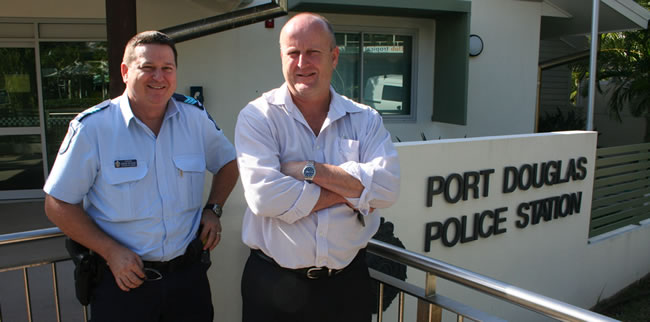
Cannabis remains drug of choice
Thursday 18 October 2012

Cannabis remains drug of choice

Cannabis remains the most widely used illicit drug in the Port Douglas and Mossman region, but our local police are continuing to strive for a drug-free society.
According to Mossman CIB's Trevor Perham, 99 per cent of drug use in our region remains recreational, while the small minority battle with severe addiction.
"Party drugs are reasonably common," Detective Sergeant Perham said. "Ecstasy, acid. Acid has made a reappearance in the last few years," he said, adding that amphetamines are used by only a small minority of drug takers.
He said there is no stereotypical user of cannabis, with children in their early teens at high school through to seniors turning to the drug.
One of the key challenges facing police, not just in our region but across the world, is the work of chemists changing the molecular makeup of Tetrahydrocannabinol (THC), the active chemical in cannabis.
Pictured: Port Douglas Police' Senior Constable Damian Meadows and Mossman CIB's Detective Sergeant Trevor Perham.
According to Detective Sergeant Perham, these synthetic drugs are created by chemists in China and Europe and mirror the effects of THC while escaping the legal spotlight.
"Chemists are changing THC and making new substances. They experiment with it to get close to THC, to duplicate the same effect, but they tweak it so it's not THC by definition."
He said these new chemicals can be sprayed on products such as tea leaves and sold legally until such time that particular THC adaptation becomes prohibited by law. However, chemists remain several steps ahead with a number of alternative adaptations in development at any one time.
Detective Sergeant Perham said many drugs are imported from southern regions into Cairns, which then filter through into the Douglas region, while some cannabis is grown within the region.
Senior Constable Damian Meadows of Port Douglas Police said that while cutting off supply coming into our region is difficult, police enjoy a strong relationship with the community who are a good source of information in the fight against drugs.
"We've got a very pro-police community and our job is made easier by the support of the community," he said.
He added that the ramifications of prolonged use of drugs such as cannabis were "massive" saying related mental health problems "severely hampers people's ability to lead a normal life."
He pointed out drugs' broader cost to the community who bear the brunt of treatment and rehabilitation costs, as well as property damage and other anti-social behaviour.
But alcohol and its affects remains the biggest substance abuse problem for local police. However according to Detective Sergeant Perham, licensed establishments have come a long way in the last decade.
"There has been a big shift in responsibility of licensed venues (through the responsible service of alcohol requirements) and it has had a big effect on crime rates.
"We don't have the drunken brawls we used to have every second night," he said.
Detective Sergeant Perham said it was important to keep the issue in perspective saying in comparison to other towns and cities we don't have many of the challenges they confront on a daily basis due to drugs.
"We've still got a beautiful place to live," he said.